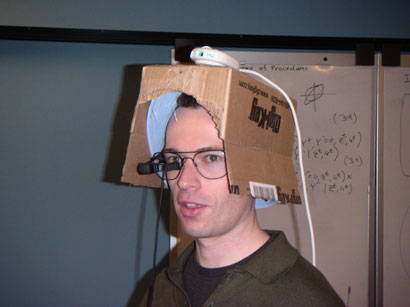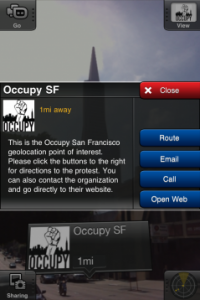Author Archives: Jenn Milam
More AR for social change
The intent here is great, but two thoughts occur to me. 1) This ad is kind of ridiculous. It could have been done in such a more tasteful and effective way. I can actually see some young guys looking this up with their friends just to laugh, reinforcing sociopathic behavior instead of curbing it… that said, 2) until the interaction is more spontaneous — less steps/hurdles to make it work — very few people will ever experience it. Very likely NOT the folks who most need to. The most effective AR “social change’ experiences will be ones that are spontaneous and unexpected, like the Dutch billboard mentioned in my last post.
How AR can fit into social change
Interesting article (with video examples) of how some are using AR as a tool for social change… just in case anyone gets inspired. 🙂
Touchable Holography
I found this after my first example, but I thought this was actually much more compelling, so I’m adding it. The inclusion of other senses besides vision to AR would almost certainly increase immersion and help to focus attention. For instance, an educational application including vision, sound and touch might be much more compelling than just text, diagrams on a board, physical models, or vision alone. I know one “standard’ application of this sort is chemistry (modeling molecules) but I’ve also heard of immersive water flow simulations and math applications in VR. I would assume those type applications could be transferred to AR (or a mix of AR/VR).
Studies have shown that attention is a large factor in memory and learning, and immersion or presence can affect attention. So, presumably, anything which increases attention would improve learning and retention. I’d be interested in pursuing immersive experiences that help students (especially, but not exclusively, special needs students) to improve the quality and quantity of their education.
AR T-shirt
To be honest, I had a hard time finding anything I thought was compelling at all. Most of the experiences I found were either game or advertising-related, none of which I found interesting in the least. The best example I found was still game- and ad-related (could be construed as a promo for the magazine), but I guess I thought it was silly for silly’s sake, and that made it less annoying. My impression from what I found is that there were lots of monetization attempts, and little creative or innovative thinking going into AR experiences, at least the ones that get high-ranking google searches or made it onto youtube. I really thought I’d find more cool stuff… I wouldn’t use any of the experiences I found in an AR project. I’d try to find something that was actually useful and not just a re-hash of what’s already been done. But I guess that’s hard.

